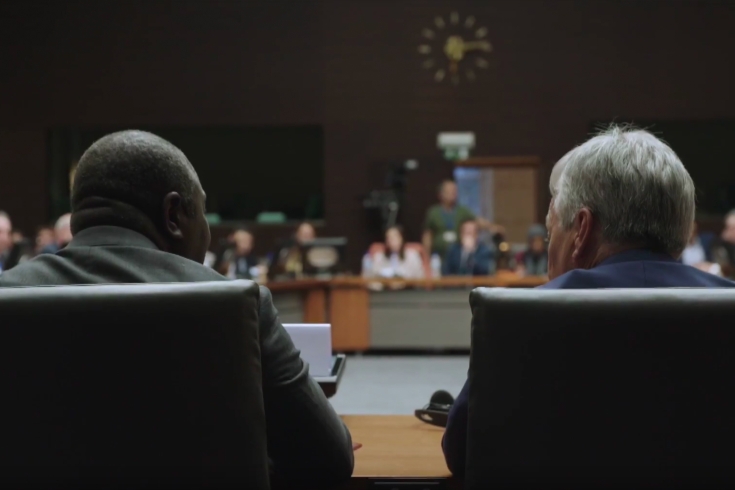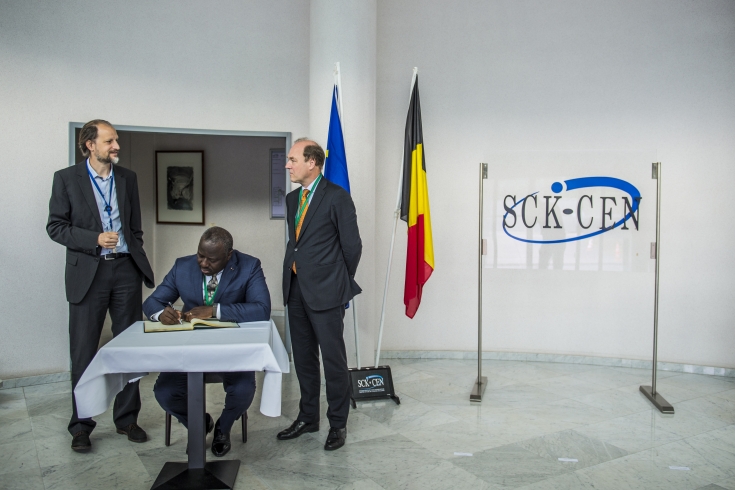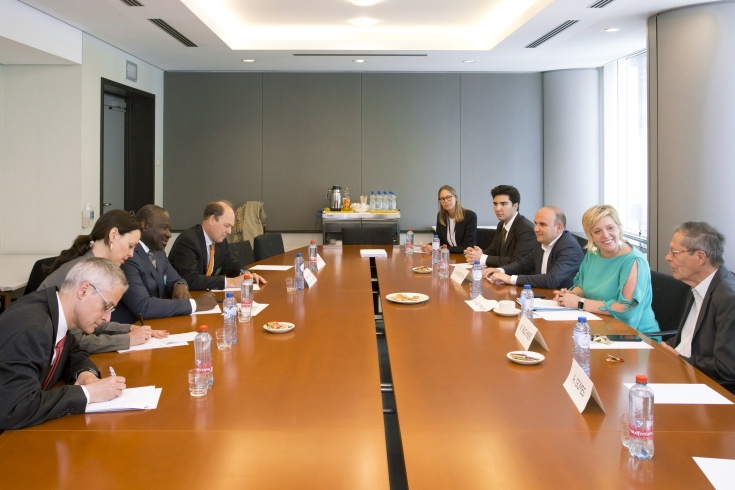High Level CTBT meeting, Egmont Institute, Brussels
“Progress is possible, even in these difficult times. The entry into force of the Comprehensive Nuclear-Test-Ban Treaty (CTBT) must be our goal here and now, not in some vague future. Let us never underestimate the relevance of this Treaty to our daily work on non-proliferation,” was the message from Frederica Mogherini European Union High Representative for Foreign Affairs to the Egmont Institute, Brussels on 22 May 2018.
High Level CTBT meeting, Egmont Institute, Brussels
CTBTO Executive Secretary Zerbo and Belgium Foreign Affairs Minister Reynders brief the media.
We all know that the work for non-proliferation requires time, and a lot of patience. It is easier to demolish than to build. But patience brings results. And only multilateral agreements have effectively guaranteed non-proliferation.
Self-declared moratoria are not good enough. The DPRK’s recent moves are a step forward, but do not permanently prevent it from resuming nuclear tests in future. Nothing except adherence to the CTBT can achieve this goal.

CTBTO Executive Secretary Zerbo and Belgium Minister of Foreign Affairs Reynders (right)
“...only the signature and ratification of the CTBT by North Korea will offer the prospect of lasting security.”
Together with Iraq, Belgium is leading the so-called Article XIV process, promoting adhesion to the Treaty. The Ambassador of Iraq in Brussels, Jawad al-Chlaihawi spoke at the meeting about the importance of the CTBT and multilateral agreements. China’s chief negotiator for the CTBT & GEM member, Ambassador Sha Zukang, said the Foreign Minister recently reiterated his country’s “firm commitment to the CTBT”.
Belgium Minister of Foreign Affairs Reynders, CTBTO Executive Secretary Zerbo and Ambassador Sha Zukang, China’s chief negotiator for the CTBT.
The Chinese Government has said it will not be the obstacle to the entry into force of the Treaty.
CTBTO Youth Group members with Belgium MFA Reynders, ES Zerbo, Ambassador Willem van de Voorde, and Sigurd Schelstraete.

Deputy Director General SCK.CEN Peter Baeten, ES Zerbo and Ambassador Willem van de Voorde.

Executive Secretary Zerbo meeting with Members of the European Parliament.
29 May 2018